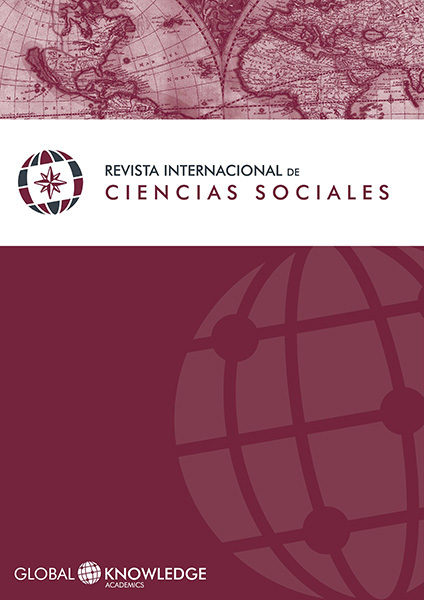Accounting Practice and Ubiquitous Learning
DOI:
https://doi.org/10.37467/gka-revsocial.v8.2103Keywords:
Mobile Technologies, Learning, Accounting PracticeAbstract
With the use of mobile technologies, learning in the ubiquitous context can stimulate students to seek knowledge within and outside the academic environment. The objective of this article is to verify the adaptation to teaching with the use of mobile technology in the teaching and student perspective, being the participants of higher education institutions of the greater Goiânia. The research found that mobile devices offer greater autonomy to students by enabling them to better manage their learning. From a teaching perspective, it has been shown that such technologies can improve learning if used adequately, but the devices are insufficient to enable learning.
Downloads
Global Statistics ℹ️
|
375
Views
|
99
Downloads
|
|
474
Total
|
|
References
CORSO, Kathiane; FREITAS, Henrique; BEHR, Ariel. (2013). O contexto no trabalho móvel: Uma discussão à luz do paradigma da ubiqüidade.. São Paulo: Revista Administração em Diálogo- RAD (vol.15, n.2, p.01-25). DOI: https://doi.org/10.20946/rad.v15i2.12454
GABARDO, Patricia; QUEVEDO, Silvia; ULBRICHT, Vania. (2010). Estudo comparativo das plataformas de ensino-aprendizagem. Florianópolis: Revista Eletrônica de Biblioteconomia e Ciência da Informação. DOI: https://doi.org/10.5007/1518-2924.2010v15nesp2p65
GÖTTSCHE, Katja. (2012). Tecnologias Móveis: uma mais valia em contextos educacionais. Florianópolis: Revista Linhas. (v. 13). DOI: https://doi.org/10.5965/1984723813022012062
KLOPFER, E. / SQUIRE, K. / JENKINS, H. (2002). Environmental Detectives: PDAs as window into a virtual simulated World. Cambridge: Massachusetts Institute of Technology.
LANCHA, Fátima. (2010). As tecnologias móveis no contexto da aprendizagem formal. In: 1º Congresso Nacional Literacia, Media e Cidadania (p.599-612). Braga, Universidade do Minho: Centro de Estudos de Comunicação e Sociedade.
MANTOVANI, Camila; MOURA, Maria. (2012). Informação, Interação e Mobilidade. Informação & Informação. Londrina (v. 17, n. 2, p. 55-76). DOI: https://doi.org/10.5433/1981-8920.2012v17n2p55
MAZZIONI, Sady. (2013). As estratégias utilizadas no processo de ensino-aprendizagem: Concepções de alunos e professores de Ciências Contábeis. Chapecó: Revista Eletrônica de Administração e Turismo-ReAT. (vol. 2, n. 1).
MISHRA, P.; KOEHLER, M.(2009) Too cool for school? No way! Using the TPACK framework: You can have hot tools and teach with them too. Learning & Leading with Technology (vol.36, n.7, p14-18).
OSTERMANN, Fernanda; CAVALCANTI, Claudio. (2011). Teorias de aprendizagem. Porto Alegre: Evangraf; UFRGS.
PASSOS, Marcia; CAMARÁ, Walberto. (2016). U-learning: Integração de Técnicas de ensino-aprendizagem para alcance da aprendizagem significativa. São Carlos-SP: SIED-EnPED. DOI: https://doi.org/10.17143/ciaed/XXIIlCIAED.2017.00392
SACCOL, Amarolinda; REINHARD, Nicolau. (2007). Tecnologias de Informação Móveis, Sem Fio e Ubíquas: Definições, Estado-da-Arte e Oportunidades de Pesquisa. Curitiba: Revista de Administração Contemporânea. (vol.11 n.4). DOI: https://doi.org/10.1590/S1415-65552007000400009
SACCOL, Amarolinda; SCHLEMMER, Eliane; BARBOSA, Jorge. (2011). M-learning e u-learning, novas perspectivas da aprendizagem móvel e ubíqua. São Paulo: Pearson Prentice Hall.
SANTOS COSTA, Giselda; XAVIER, Antonio Carlos. (2014). Aprendizagem formal, não-formal e informal com a tecnologia móvel: um processo rizomático (p.642-647). Universidade de Lisboa- Portugal: Aprendizagem Online – Atas do III Congresso Internacional das TIC na Educação .
SIEMENS, George. (2004). Conectivismo: uma teoria de aprendizagem para a idade digital.
TAROUCO, Liane; FABRE, Marie-Christine; KONRATH, Mary; GRANDO, Anita. (2004). Objetos de aprendizagem para m-learnin. In: Congresso Nacional de Tecnologia da Informação e Comunicação. Florianópolis: SUCESU.
Downloads
Published
How to Cite
Issue
Section
License
Those authors who publish in this journal accept the following terms:
-
Authors retain copyright.
-
Authors transfer to the journal the right of first publication. The journal also owns the publishing rights.
-
All published contents are governed by an Attribution-NoDerivatives 4.0 International License.
Access the informative version and legal text of the license. By virtue of this, third parties are allowed to use what is published as long as they mention the authorship of the work and the first publication in this journal. If you transform the material, you may not distribute the modified work. -
Authors may make other independent and additional contractual arrangements for non-exclusive distribution of the version of the article published in this journal (e.g., inclusion in an institutional repository or publication in a book) as long as they clearly indicate that the work was first published in this journal.
- Authors are allowed and recommended to publish their work on the Internet (for example on institutional and personal websites), following the publication of, and referencing the journal, as this could lead to constructive exchanges and a more extensive and quick circulation of published works (see The Effect of Open Access).













